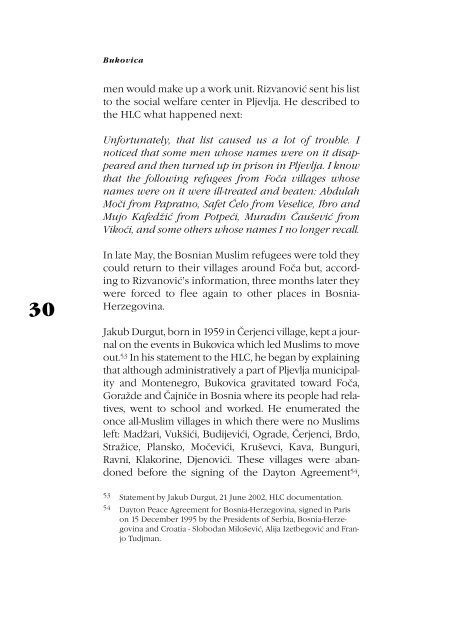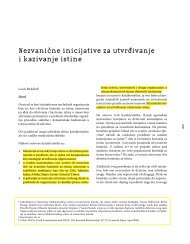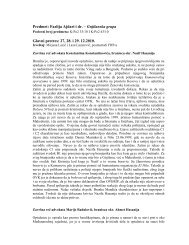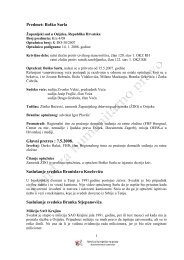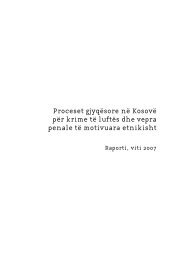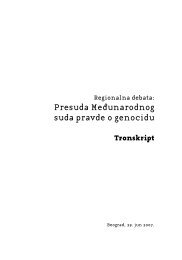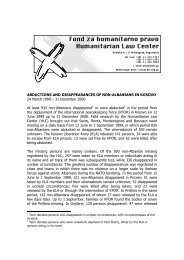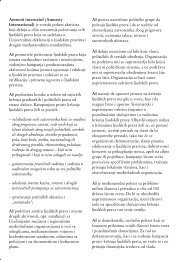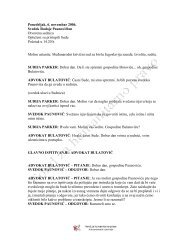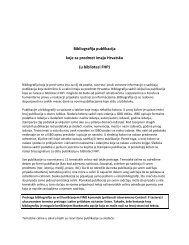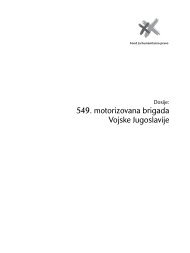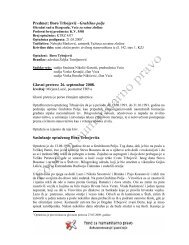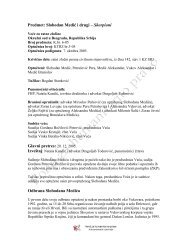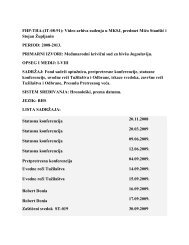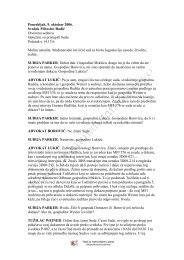Bukovica engleski.qxd - Fond za humanitarno pravo
Bukovica engleski.qxd - Fond za humanitarno pravo
Bukovica engleski.qxd - Fond za humanitarno pravo
Create successful ePaper yourself
Turn your PDF publications into a flip-book with our unique Google optimized e-Paper software.
<strong>Bukovica</strong> <strong>engleski</strong>.<strong>qxd</strong> 15.3.2003 13:53 Page 30<br />
30<br />
<strong>Bukovica</strong><br />
men would make up a work unit. Rizvanović sent his list<br />
to the social welfare center in Pljevlja. He described to<br />
the HLC what happened next:<br />
Unfortunately, that list caused us a lot of trouble. I<br />
noticed that some men whose names were on it disappeared<br />
and then turned up in prison in Pljevlja. I know<br />
that the following refugees from Foča villages whose<br />
names were on it were ill-treated and beaten: Abdulah<br />
Moči from Papratno, Safet Ćelo from Veselice, Ibro and<br />
Mujo Kafedžić from Potpeći, Muradin Čaušević from<br />
Vikoći, and some others whose names I no longer recall.<br />
In late May, the Bosnian Muslim refugees were told they<br />
could return to their villages around Foča but, according<br />
to Rizvanović’s information, three months later they<br />
were forced to flee again to other places in Bosnia-<br />
Herzegovina.<br />
Jakub Durgut, born in 1959 in Čerjenci village, kept a journal<br />
on the events in <strong>Bukovica</strong> which led Muslims to move<br />
out. 53 In his statement to the HLC, he began by explaining<br />
that although administratively a part of Pljevlja municipality<br />
and Montenegro, <strong>Bukovica</strong> gravitated toward Foča,<br />
Goražde and Čajniče in Bosnia where its people had relatives,<br />
went to school and worked. He enumerated the<br />
once all-Muslim villages in which there were no Muslims<br />
left: Madžari, Vukšići, Budijevići, Ograde, Čerjenci, Brdo,<br />
Stražice, Plansko, Močevići, Kruševci, Kava, Bunguri,<br />
Ravni, Klakorine, Djenovići. These villages were abandoned<br />
before the signing of the Dayton Agreement 54,<br />
53 Statement by Jakub Durgut, 21 June 2002, HLC documentation.<br />
54 Dayton Peace Agreement for Bosnia-Herzegovina, signed in Paris<br />
on 15 December 1995 by the Presidents of Serbia, Bosnia-Herzegovina<br />
and Croatia - Slobodan Milošević, Alija Izetbegović and Franjo<br />
Tudjman.


